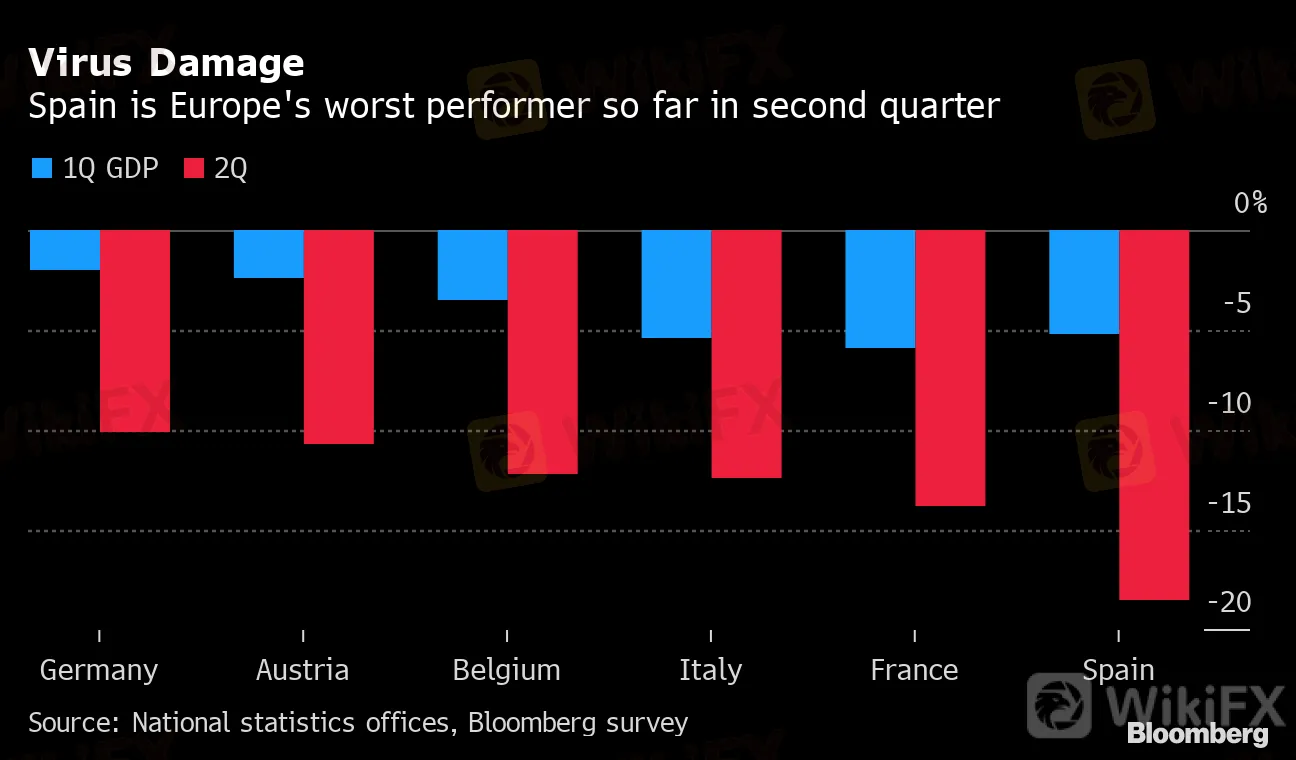Forums » News and Announcements
Virus Plunges Euro-Area Into Deep Recession
-
The coronavirus pandemic sent the euro-area economy into the deepest recession on record in the second quarter, taking output back to levels not seen since early 2005.To get more news about WikiFX, you can visit wikifx news official website.
While indicators show a rebound is already underway, the 12.1% plunge in the 19-member region and mounting concerns about new flare-up in infections point to a long recovery that may leave lasting scars in its wake.
Spain took the biggest hit, shrinking 18.5%, while French and Italian output also dropped by double digits. The declines reflect the effect of strict quarantines measures on businesses and consumer spending, and a slump in tourism in some countries.
The health crisis was most severe in the regions least economically resilient members, leaving them with little firepower to support households and businesses. That forced European Union leaders to overcome longstanding differences on joint borrowing and agree on a historic 750 billion-euro ($889 billion) rescue fund this month.
National governments have already stretched their budgets to deal with the crisis, and the European Central Bank launched a 1.35 trillion-euro bond emergency program to contain the economic shock.
“I don‘t think anybody really realistically should think that levels of GDP by the end of 2021 will be back at the pre-crisis levels,” Erik Nielsen, UniCredit Group chief economist, told Bloomberg TV’s Francine Lacqua and Tom Keene. “Monetary policy will keep the pedal to the metal.”
The euro was trading little changed at $1.1843 as of 2:07 p.m. in Frankfurt. It had earlier breached $1.19.
The ECB‘s actions have particularly targeted southern Europe after bond yields in Italy spiked early in the crisis because of investor worries that huge health spending could cripple the the country’s already-weak finances.
While that economy‘s second-quarter slump was less than in Spain or France, it’s in a particularly vulnerable position because of its debt burden and sluggish long-term growth.
Overall, the rebound in Europe is under threat from a surge in new outbreaks thats emerging across the globe. Governments are reluctant to impose strict national lockdowns, but economies could suffer anyway if fear of infection alters consumer behavior or stops people going to stores, bars and restaurants.
That puts countries such as Italy, Spain and Greece -- all of which have huge tourism sectors -- under the spotlight. Spains already bad summer season took a turn for the worse last weekend when the U.K. announced that holidaymakers returning from the country would have to quarantine because of an uptick in coronavirus cases in some regions.
What Bloomberg‘s Economists’ Say...
“The big question is how far the recovery has to run. High-frequency indicators suggest the pace is now slowing and we expect a combination of ongoing social distancing rules, spending caution and weak external demand to act as a ceiling on activity for the rest of this year. And the main risk -- a second wave of infections -- looks closer to crystalizing.”
